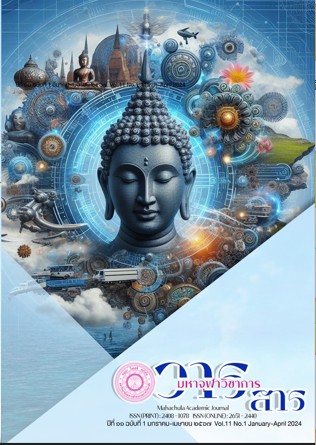Adversity Quotient, Emotional Quotient, and Work Happiness
Main Article Content
Abstract
The objectives of this research were to: (1) study the levels of adversity quotient, emotional quotient and work happiness of personnel at Kasikorn Bank; (2) compare work happiness of personnel at Kasikorn Bank by diverse personal factors ; (3) study the relationship between adversity quotient and work happiness of personnel at Kasikorn Bank; and (4) study the relationship between emotional quotient and work happiness of personnel at Kasikorn Bank. The samples were consisted of 193 personnel at Kasikorn Bank, Head Office. Data were collected by questionnaires. Data analysis used by a statistical package program. The statistical methods used by percentage, mean, standard deviation, t-test, F-test and Pearson’s product moment correlation coefficient.
The research findings showed that: (1) adversity quotient of personnel at Kasikorn Bank was the medium level , emotional quotient and work happiness of personnel at Kasikorn Bank were the high level; (2) the personnel at Kasikorn Bank had difference in income and expense balance had difference work happiness with statistically significant at .05 level, and the personnel at Kasikorn Bank had difference in gender, age, status, education level, average monthly income, work experience and department had not difference work happiness; (3) adversity quotient of personnel at Kasikorn Bank was positively related to work happiness with statistically significance at .01 level; and (4) emotional quotient of personnel at Kasikorn Bank was positively related to work happiness with statistically significance at .01 level.
Article Details

This work is licensed under a Creative Commons Attribution-NonCommercial-NoDerivatives 4.0 International License.
References
เถลิงเกียรติ สุภศิลป์. “ความสัมพันธ์ระหว่างความสามารถในการเผชิญและฟันฝ่าอุปสรรค ความพึงพอใจในงาน กับแนวโน้มที่จะลาออกจากองค์การของพนักงาน กรณีศึกษา : ธุรกิจขายอาหารสัตว์น้ำ กลุ่มธุรกิจเกษตรอุตสาหกรรมและอาหาร (สัตว์น้ำ) เครือ เจริญโภคภัณฑ์”. วิทยานิพนธ์ศิลปศาสตรมหาบัณฑิต. สาขาจิตวิทยาอุตสาหกรรมและองค์การ. บัณฑิตวิทยาลัย: มหาวิทยาลัยธรรมศาสตร์, ๒๕๕๐.
ธัญญารัตน์ ยุวรรณะ. “อิทธิพลของการเผชิญและฟันฝ่าอุปสรรคและการเห็นคุณค่าในตนเองต่อความผาสุกของพนักงานฝ่ายผลิตในบริษัทผลิตบรรจุภัณฑ์แห่งหนึ่ง”. วารสารสังคมศาสตร์และมนุษยศาสตร์, ปีที่ ๔๐ ฉบับที่ ๑ (มกราคม-มิถุนายน ๒๕๕๗) : ๑๔๗-๑๖๕.
พิทักษ์ พิสัยพันธุ์. “การศึกษาความสุขของครูสังกัดสำนักงานเขตพื้นทีการศึกษาระยอง เขต ๒”. วิทยานิพนธ์การศึกษามหาบัณฑิต. บัณฑิตวิทยาลัย: มหาวิทยาลัยบูรพา, ๒๕๕๓.
มนชนก ชูพรรคเจริญ. “ปัจจัยที่มีความสัมพันธ์กับความสุขในการทำงานของพนักงานเอกชนในพื้นที่อำเภอเมือง จังหวัดสมุทรปราการ”. สารนิพนธ์บริหารธุรกิจมหาบัณฑิต. บัณฑิตวิทยาลัย: สถาบันเทคโนโลยีไทย-ญี่ปุ่น, ๒๕๖๒.
สุพงศ์ สิทธิสมเรือง. “ความฉลาดทางอารมณ์กับความพึงพอใจในการทำงานของพนักงานเอกชนในเขตกรุงเทพมหานคร”. การค้นคว้าอิสระบริหารธุรกิจมหาบัณฑิต. สาขาการจัดการ. บัณฑิตวิทยาลัย: มหาวิทยาลัยเทคโนโลยีราชมงคลรัตนโกสินทร์, ๒๕๕๙.
สุพรรษา มากงลาด. “ความฉลาดทางอารมณ์ การรับรู้ความยุติธรรมในองค์การและความผูกพันต่อองค์การโดยมีความพึงพอใจในงานเป็นตัวแปรสื่อของพยาบาล โรงพยาบาลมหาวิทยาลัยแห่งหนึ่ง”. วิทยานิพนธ์ศิลปศาสตรมหาบัณฑิต. บัณฑิตวิทยาลัย: มหาวิทยาลัยธรรมศาสตร์, ๒๕๖๑.
สำนักกองทุนสนับสนุนการเสริมสร้างสุขภาพ (สสส.). จุดประกาย Happy Workplaceองค์กรแห่งความสุข. กรุงเทพมหานคร: บริษัท รุ่งศิริพลับบลิชิ่ง, ๒๕๕๗.
Goleman, D. Working with emotional quotient. New York: Bantum Books, 1998.
Manion, Jo. Joy at Work: Creating a Positive Work Place. Journal of Nursing Administration. , Voi.33 No.12, (2003.) : 652-655.
Stoltz, P. G. Adversity quotient : Turning obstacles into opportunity. New York: John Wiley & Sons, 1997.


